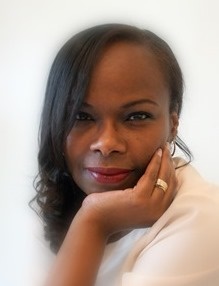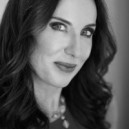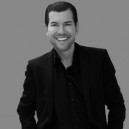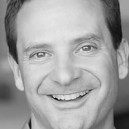A Life Coach Discusses Education, Mistakes & Timing
 Dawn C. Reid, M.A., is a relationship-success expert, life coach and the founder of Reid Ready Life Coaching, LLC. She earned her undergraduate degree from the New York Institute of Technology and her graduate degree from Walden University, with focus on psychology and social behavior. Currently, Reid is working on a doctoral degree; she is in the process of earning a Ph.D. in behavioral science from Northcentral University. Reid has written two books, Positive Thinking for Positive Living which is written as an inspirational tool for practicing positive thinking on a daily basis; and Don't Let the Funeral Kill You which is a guide to walking through the various aspects of funeral planning.
Dawn C. Reid, M.A., is a relationship-success expert, life coach and the founder of Reid Ready Life Coaching, LLC. She earned her undergraduate degree from the New York Institute of Technology and her graduate degree from Walden University, with focus on psychology and social behavior. Currently, Reid is working on a doctoral degree; she is in the process of earning a Ph.D. in behavioral science from Northcentral University. Reid has written two books, Positive Thinking for Positive Living which is written as an inspirational tool for practicing positive thinking on a daily basis; and Don't Let the Funeral Kill You which is a guide to walking through the various aspects of funeral planning.
As she is currently obtaining her doctoral degree, we sat down with Reid and asked her to answer questions regarding to education, mistakes, and timing.
What are your reflections on the belief that education is not a sprint, it’s a marathon?
It takes 12 years for a typical student in the U.S. to complete grammar or elementary school. It takes another 2-4 years to earn a post-secondary degree. If you are ambitious, you may pursue professional degrees and certifications, which often taken another 2-6 years. Formal academic training is not a quick, short-distance experience. Like a marathon, you are in it for the long-haul because the finish line, which is graduating, can be some years away. Therefore, you must be financially and mentally prepared to go the distance, especially if you have a particular career in mind that requires a specific educational course and degree, like a doctor or lawyer. Likewise, education, formal or informal, is a life-long journey. You are always growing, learning, and becoming. Once one lesson is learned, life will provide another. So, education should never been perceived as a one-time, quick or short experience.
Learn more about becoming a life coach and life coach employment outlook.
Many believe that you learn more from failure than success. How do you feel about this?
Many inventors and creators, such as Steve Jobs, Bill Gates, Einstein, and various others have failed. Matter of fact, if you research any of these individuals, and many others, you will find that they failed much more than they succeed. It is in our failures where we learn what to do correctly. It is in those situations that don't work out well that we learn valuable information about ourselves and others. However there is the erroneous belief that failing means being a failure. Failing simply means something did not work. That's ok. You may fail the same test a few times. Your start-up business may go belly-up the first time out the gate. Your marriage may fail, or your children may run astray. Does this make you a failure? No. Not everything will work the first time you try. Being a failure is not taking courage to try. That is the only way someone can be a failure. Why? Because you have already told yourself you can't, or you won't at something that you were meant to do, before giving the opportunity a chance.
When you let fear of failure stop you, you have already failed. But, if you try, you have a chance-- sometimes with the odds working greatly in your favor. And, even if after trying you don't succeed, you have the opportunity to learn valuable lessons that you would not otherwise experience. So, failing is a beneficial condition as long as you learn from the mistakes you make; you are more likely to do greater and better the next time around.
As a life coach, do you believe that timing and balance are everything?
Timing and balance are two ideals that are important to having a productive life. In my opinion, timing suggests being available and in position (both mentally and physically) at the right moment. Timing also implies being ready to receive. However, balance refers more to having harmony between one or more areas or domains in your life, not so much equal distribution of these domains. For instance, employees and employers discuss work-life balance. However, there really isn't such a thing. If it were so, that would mean you would spend 12 hours a day at work and 12 hours a day in your personal life. What people really want to achieve is harmony. We seek the different areas of our lives to work together smoothly and with minimal hiccups. Additionally, harmony is about what you are able to give up. In other words, how much of your time can you give in all areas that need your attention is another implication of harmony. So, it is not about balance in life, but having simultaneous agreement of where you want to focus your attention concerning life's situations. Therefore, timing and harmony are everything because they deal with what you receive and what you give in order to have peace of mind, fulfillment, and overall happiness.

































